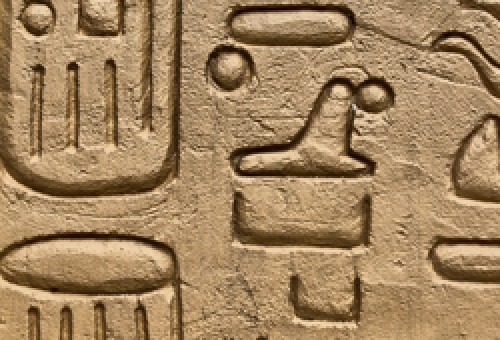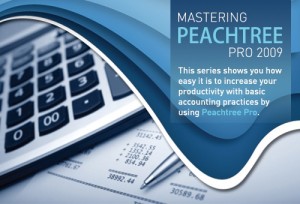Product Description
The aim of the entire programme is to develop historical analytical and evaluation skills among the students. It offers a direct study of original sources of ancient Greek and Roman world. The study helps in understanding the interesting facts and happenings of Ancient History.
Framed as per the specifications of OCR, we are offering online course for Ancient History at A-level course.
These eLearning courses are developed to encourage students and create understanding of good historical methods of ancient Greek and Roman world. Further, these courses offer students a chance to establish their personal responses to the set texts chosen by them for Ancient study.
Entry Requirements
Basic English reading and writing skills, as full tutor support is given.
Whats Included
Learning documentation, Online Resources and Tutor support for 2 years.
Course Study Format
Course will be delivered online.
Courseware Support
The biggest advantage of studying with us is that using your unique student account, you can immediately access the course materials online and submit all the question papers to the tutor online. On submission of question papers, you will immediately, receives the email containing the results and feedback.
Study Hours
Study hour is dependent upon the dedication and grasp towards the learning concepts mentioned in the course material. Furthermore, at the end of each lesson there is a question paper that needs to be completed and returned to the tutor.
Learning Hours
Approximately 360 hours.
Assessment Method
The Examination:
The course is examined in below components:
AS Units AH1 and AH2
Each unit is worth 50% of the total marks available for the AS GCE, and 25% for the A2 GCE if taken. The papers are each 90 minutes long and each carry 100 marks.
Unit AH1: Option 1 Greek history from original sources
Section A: Commentary question (45 marks). Candidates answer one question from a choice of two, each question having three sub sections.
Section B: Essay question (55 marks). Candidates answer one question from a choice of three. Bullet point guidance is given for each of the essay questions.
Unit AH2: Option 3 Roman history from original sources
Section A: Commentary question (45 marks). Candidates answer one question from a choice of two, each question having three sub sections.
Section B: Essay question (55 marks). Candidates answer one question from a choice of three. Bullet point guidance is given for each of the essay questions.
A2 Units AH3 and AH4
Each unit is worth 25% of the total marks available for the A2 GCE. The papers are each 2 hours and each carry 100 marks.
Unit AH3: Option 3 Greek history: conflict and culture
Essay question (50 marks). Candidates are required to answer two essay questions from a choice of four. The essay questions answered must both be from the same option.
Unit AH4: Option 3 Roman History: the use and abuse of power
Essay question (50 marks). Candidates are required to answer two essay questions from a choice of four. The essay questions answered must both be from the same option. This unit is synoptic.
Exams would need to be carried out at an approved examination centre. Please contact us for assistance.
Exams
All exam vouchers supplied with our courses must be used within the duration of your course. Exam Vouchers become invalid once the course has expired.
OCR Advanced Subsidiary (AS-level) in GCE Classics: Ancient History (H042)
Unit AH1 (Entry Code F391) Option 1: Athenian Democracy in the fifth century BC
The principal focus of this unit is the handling of original sources as an historian. Candidates should be able to demonstrate knowledge and an understanding of the nature of historical evidence; the methods used by historians in analysis and evaluation including the problem of reliability and a selection of original source material in its context. Candidate should be able to demonstrate interpretation, analysis and evaluation of the sources in context.
The literary sources:
Aristophanes, Acharnians 1203, Wasps 8911008, Knights 147395 Constitution of the Athenians 21.122.6, 23.4f, 22.5
Herodotus, 5.66, 5.69 The Old Oligarch
Plato, Apology 17cd, 34bc
Plutarch, Nicias, 11.16
Thucydides 2. 3546, 65; 4.2630
Xenophon, Recollections 3.7.6 (ARD 128)
Xenophon, History of Greece, 1.7 (ARD 325)
Candidates must be prepared to answer commentary questions on passages taken from any of the material prescribed above. In studying the original sources, candidates should be able to demonstrate knowledge and an understanding of: the nature and distinctiveness of ancient Athenian democracy; the nature and level of participation in the democratic system (including critiques of this system) by the population of Attica, including citizens, women, metics and slaves; the workings of the assembly (ekklesia), the council (boule), and the role and function of magistrates (archons) and generals (strategoi) and ostracism; courts and their role in democracy; the role and significance of prominent individuals (Cleisthenes, Perikles, Ephialtes, Cleon), as represented in the sources and the importance of rhetoric and public speaking for leadership in Athens.
Unit AH2 (Entry Code F392) Option 3: Britain in the Roman Empire
The principal focus of this unit is the handling of original sources as an historian. Candidates should be able to demonstrate knowledge and an understanding of the nature of historical evidence; the methods used by historians in analysis and evaluation including the problem of reliability and a selection of original source material in its context. Candidate should be able to demonstrate interpretation, analysis and evaluation of the sources in context.
The literary sources:
Caesar, Gallic War 4.2038; 5. 823
Cicero, Letters to Atticus, 4.15.10, 4.16.7, 4.18.5
Dio, 49.38.2, 53.22.5, 53.25.2, 55.23.2, 55.23.3, 55.23.5, 59.25.13, 60.19.1 60.22.2, 60.23.160.23.6, 60.30.2, 62.1.162.3.4, 62.7.162.9.2, 62.12.162.12.6
Horace, Odes, 1.35.2930, 3.5.14
SHA (Scriptores Historriae Augustae), Hadrian 5.15.2, 11.2, Antoninus Pius, 5.4
Strabo, Geography 2.5.8, 4.5.14
Suetonius, The Deified Julius, 25.125.2, 47;Caligula, 44.2, 46.1;Claudius, 13.2, 17.117.3, 21.6, 24.3; Nero, 18, 39.1;Vespasian, 4.14.2
Tacitus, Agricola
Tacitus, Annals 2.24, 11.19, 12.23, 12.3140, 14. 2939
Tacitus, Histories 1.2, 1.9, 1.5960, 2.66, 3.4445
Tibullus, 3.7.147150
The archaeological sources:
Gold stater of Tincommius (Van Arsdell 375)
Gold stater of Tasciovinius (Van Arsdell 1780)
Silver coin of Eppillus (Van Arsdell 415)
Gold stater of Verica (Van Arsdell 520)
Gold stater of Cunobelinus (Van Arsdell 2025)
Gold coin of Cunobelius (Van Arsdell 2095)
Aureus of Claudius (RIC Claudius 9 = BMC Claudius 32)
Sestertius of Hadrian (RIC Hadrian 845)
Longinus Sdapeze (RIB 201)
Dannicus (RIB 108)
Sex. Valerius Genialis (RIB 109)
Rufus Sita (RIB 121)
M Favonius Facilis (RIB 200)
Julius Classicanius, procurator (RIB 12)
T. Valerius Pudens (RIB 258)
C. Calventius Celer (RIB 475)
Titus Pontius Sabinus (ILS 2726)
Arch of Claudius (ILS 216)
Mendip lead pig (RIB 2.1.2404.1)
Chester lead water-pipe (RIB 2.3.2434.1)
Verulamium forum inscription (JRS 46 1467)
Commemorative tablet from York (RIB 665)
Altars to Neptune and Oceanus (RIB 1319 and 1320)
Milecastle 38 building inscription (RIB 1638)
Halton Chesters dedication slab (RIB 1427)
Vindolanda tablet military strength report (Tab. Vindol. 2.154)
Vindolanda tablet about British cavalry (Tab. Vindol. 2.164)
Candidates must be prepared to answer commentary questions on passages taken from any the material prescribed above. In studying the original sources, candidates should be able to demonstrate knowledge and an understanding of: Roman views of pre-conquest Britain: Caesars invasions, Celtic societies and links with Rome up to AD 43; Claudius invasion and the early conquest period, to c. AD 60 resistance and co-operation; Boudiccas Rebellion and its aftermath; Expansion north under Agricola and earlier governors of Britain; Frontier policy from Agricola to Antoninus Pius and the withdrawal back to Hadrians Wall, c. AD 160; Roman views of British economy and society after AD 43, as represented by the sources.
OCR Advanced level (A-level) in GCE Classics: Ancient History (H442)
Unit AH3 (Entry Code F393) Option 3: The culture of Athens 449-399 BC
This unit builds on the skills that candidates have acquired in AS Units F391 and F392. Candidates will be expected to use the skills they have acquired in handling original sources at AS level and refer to these sources where appropriate. The principal focus of this unit is on the investigation of historical themes through the evaluation and interpretation of original sources in context. Candidates should be able to demonstrate knowledge and an understanding of the nature of historical evidence; the methods used by historians in analysis and evaluation including the problem of reliability and a selection of original source material in its context. Candidate should be able to demonstrate interpretation, analysis and evaluation of the sources in context.
The thematic focus of this option is the cultural and intellectual life of fifth century Athens. Candidates will be expected to have read a selection of appropriate original sources on the following topics, and to refer to them in supporting their answers: the changing intellectual climate in Athens, including rhetoric, the Sophists and Socrates; dramatic festivals and the theatre, including tragedy and comedy; religious festivals and sanctuaries; Athenian views of themselves and non-Athenians, including citizens and non-citizens, women and children; and art and architecture in their political and social contexts.
The appropriate secondary sources will be discussed further in the study materials.
Unit AH4 (Entry Code F394) Option 3: Ruling the Roman Empire 14-117 AD
This unit builds on the skills that candidates have acquired in AS Units F391 and F392. Candidates will be expected to use the skills they have acquired in handling original sources at AS level and refer to these sources where appropriate. The principal focus of this unit is on the investigation of historical themes through the evaluation and interpretation of original sources in context. Candidates should be able to demonstrate knowledge and an understanding of the nature of historical evidence; the methods used by historians in analysis and evaluation including the problem of reliability and a selection of original source material in its context. Candidate should be able to demonstrate interpretation, analysis and evaluation of the sources in context.
The thematic focus of this option is Romes relations with the provinces of the empire. Candidates will be expected to have studied a range of original sources on the following topics, and to refer to them in supporting their answers: attitudes to imperial rule in the eastern and western provinces, including active resistance and the maintenance of local or regional identities; the social and economic effects on provinces of incorporation within the Empire, including the question of Romanisation; the differing image of the emperor in the eastern and western provinces, including the imperial cult; the governance and administration of the Empire including the role of senators, equestrians and the army and frontier and defensive policies within the Empire.
The appropriate secondary sources will be discussed further in the study materials.
Job Prospects
Become fully trained and substantially improve the chances of employment or earn more money!
Qualification NVQ Level 3
Fully recognised UK Qualification. On completion of this course you will be awarded with a Diploma, which is an NVQ Level 3 qualification. It will be awarded by a UK accredited body.
Certificates
Upon completion of the course, you can download the completion certificate as well as any other qualifications you have been awarded.
Award
On completion of this course you will earn an A Level in Ancient History.
OCR Advanced Subsidiary GCE in Classics: Ancient History H042
OCR Advanced GCE in Classics: Ancient History H442
Course Information
Please note that the registration to the On Campus student community and licence to print the study materials is included in the course fee. The licence is only for you print, therefore you have to ensure proper availability of cartridge and papers to print the full course materials, if required.
You need to have either of the following packages to access the On Campus area:
• Windows: Windows 98, 2000, XP, Vista, Windows 7 – Acrobat Reader 4.0 and above
• Macintosh: Mac OS X, Mac OS 9.2 – Acrobat Reader 4.0 and above
In the student ‘On Campus’ you can also be a take part of the student chat room and forums, as part of our online student community.
Once enrolled to the online programme, the username and password to access the On Campus area will be sent within 5 working days.
Students are required to arrange and pay for their examinations and manage the course work element, if the subject requires. Students must check the relevant examination board website for further information and final examination sitting dates for the specification.
This course is self-contained so you will not need to use any extra textbooks. However, you may find useful to read other books on this subject:
• Business Accounting 1 – Frank Wood & Alan Sangster, FT Prentice Hall. ISBN 0273655523
• Business Accounting 2 – Frank Wood & Alan Sangster, FT Prentice Hall. ISBN 0273655574
• Business Accounts – David Cox, Osborne books
You can also contact the tutor if he/she feels the need to practice more in any of the areas covered in this course.












